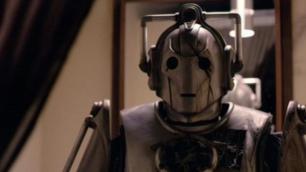 Trumpet-vine blasting it out, Bay of Kotor, 18 July
Trumpet-vine blasting it out, Bay of Kotor, 18 July
I’ve been reading Hester non-stop for three days, wishing someone could write a novel about people and banking for our own times that would be anywhere as near as good as this. Is it because we’ve created the discipline of psychology – as a sort of separate place – that this kind of writing has ceased to be of interest to novelists? If so, what a waste, because psychology, though it provides lots of interesting stuff for us, can’t do this. The novelist’s use of imagination to enter the mind and feelings of characters, to tell us what is going on it there, to help us feel other peoples feelings and to know it through language, is unique. But we don’t get enough of it. Or I am reading the wrong contemporary novels? and then there is telly, the box-set, film. Soon, possibly, gaming will do this for us.
I’d been meaning to mention Broken by Jimmy McGovern. I’m sure everyone will have seen it by now but I’ll mention it anyway: here’s McGovern at the height of his considerable powers.
Film can’t do what novels do, it is a different medium, image not language-based. With language you can know, and experience, because you take the language into yourself, what a character is thinking and feeling. With film you guess, imagine, intuit. With great film a lot of imagination, intuition is happening. Of course, lots of film and telly (like lots of fiction) is also absolute dross and then a piece of work comes along that is something else, and Broken is one of those. Jimmy McGovern said he cried writing it and I believe that’s true. Sean Bean plays the Catholic Priest at the centre of the drama and gives the performance of a lifetime, grim, loving, angry, full of feelings. The seriousness of having a life, inner and outer, the strange, unfathomable complexity of human feeling came to life as I watched Father Michael Kerrigan, lying on an airbed beside the bed of his dying mother, singing ‘Chattanooga Choo-Choo’. Yes, this was the same mother who had terrorised his early childhood, and yes, that pain was till in him, and yet…he wanted to love his mother and be a good son and her to have a good death: they enjoyed the singing and McGovern helped me remember how complex and multi-dimensional human family relationships are…Great writing, because great understanding of and feeling for human beings. Thing is, if Jimmy McGovern had written it in a novel, I’d be able to read it over and over…
Hester has made me think I’d like to have a year of reading Margaret Oliphant – novels I barely remember, Salem Chapel, Miss Marjoribanks…but what I really want is someone noticing as much about human beings and getting it down in sentences… Here’s Edward, for years, almost against his will, a steady leader at Vernon’s Bank, considering doing something really dangerous, partly for financial gain (and the freedom it would bring him) partly for the sheer self-willed hell of it :
As his ideas disentangled themselves, there seemed to be two possibilities before him. If he threw himself into Ashton’s scheme at all, to do it as a partner in the business, not indeed with the sanction of his other partners, but, if there was risk to the firm in his proceedings at large, to make them profitable to it in case of success. In case of success! Of course there would be success. It was inevitable that they must succeed. On the other side, the expedient was to use the money and the securities of the bank, not for the aggrandisement of Vernon’s, but for his own. This would leave the responsibility of the action entirely upon his own shoulders if anything went wrong. And he did not refuse to give a rapid glance at that contingency. What could it mean to the bank? Not ruin—he half-smiled as he thought. It would mean coming down perhaps in the world, descending from the prestige and importance of its present rank. And to himself it would mean going to the dogs—anyhow, there could be no doubt on that point.
It’s interesting to read it slowly and follow the movements of Edward’s mind as he imagines what might go wrong:
Not ruin—he half-smiled as he thought. It would mean coming down perhaps in the world, descending from the prestige and importance of its present rank. And to himself it would mean going to the dogs—anyhow, there could be no doubt on that point.
That half-smile is weird, as if the thought of ruin actually partly appeals – which it does because it would be a kind of punishment to Catherine Vernon, the old lady who Edward feels rules him. His cool estimation of the damage to the Bank – ‘It would mean coming down perhaps in the world, descending from the prestige and importance of its present rank’ – feels almost vicious, a punishment for her for which he is willing to pay everything: ‘And to himself it would mean going to the dogs—anyhow, there could be no doubt on that point.’
How can a sensible, long-standing man of business make a really crazy decision which seems – on the top-level – so against the cut of his character? Oh, look beneath the clothes to the feelings of the man who has paid for his success and standing with his pride. The destruction he so easily contemplates for Vernon’s is both destruction of Catherine and of self…he despises both.
And it is not simply that desire to punish, which might be enough motivation by itself – there’s also a kind of longing for change, for air, for something new and lively…
But on the other side! that was better worth looking at, more worthy of consideration. It would be like pouring in new blood to stagnant veins; it would be new life coming in, new energy, something that would stir the old fabric through and through, and stimulate its steady-going, old-fashioned existence. It would be the something he had longed for—the liberating influence, new possibilities, more extended work. He thought, with an excitement that gradually overmastered him, of the rush of gain coming in like a river, and the exhilaration and new force it would bring. This idea caught him up as a strong wind might have caught him, and carried him beyond his own control.
This too is about his position as the chosen inheritor of Catherine. He has not had a chance to be ‘new blood’, he has done her will, not his own, the ‘fabric’ is all hers. the dangerous change he is going to choose is a chance to exert his own will, ‘it would be the something he had longed for’, and this is not about money but about the chance for the play of self, the use if one’s own energy: ‘the liberating influence, new possibilities, more extended work’. Finally, he feels the power that new money will give him and it is this that pushes him over the edge of rational thought: ‘he thought, with an excitement that gradually overmastered him, of the rush of gain coming in like a river, and the exhilaration and new force it would bring. This idea caught him up as a strong wind might have caught him, and carried him beyond his own control.’
He has changed his mind and become a man who will now act dangerously. Small restraints have led him to the place where he will burst his bonds.
Hard to know how you’d do this in visual. I can imagine seeing a Sean Bean from the outside, but hard to gauge or to spell out those gradations of change?
I keep thinking, this is one worked example but I can imagine the same mental/spiritual process in lots of different examples. In McGovern’s Broken, for example, the woman who covers up her mother’s death in order to claim her pension. In real life, the child abductor who has decided to snatch a child. (This morning I read in The Times Sara Payne, mother of murdered Sarah Payne, describing seeing Whiting (the murderer) in court for the first time and realising he ‘wasn’t a monster.’ ‘I realised, he’s just a sad, lonely person that goes after children because he can’t have a relationship with an adult.’). Whiting went through some kind of thought process before snatching that child.
Or you want to keep your thoughts on something more commonplace and less noticeable – the relationship between Father Michael and his brothers: brilliant. McGovern’s Broken is full of such moments. He has noticed everything.
Please, write a novel, Jimmy.
Some say that the age of the novel is over. It is all visual now, and future is in Sky Box Sets and gaming – there’s a game of Walden now and there will be more and better to come… but I’d argue there is a need for language that only literature answers.
But save that argument for tomorrow, time’s up, must go swim.
Share this:






